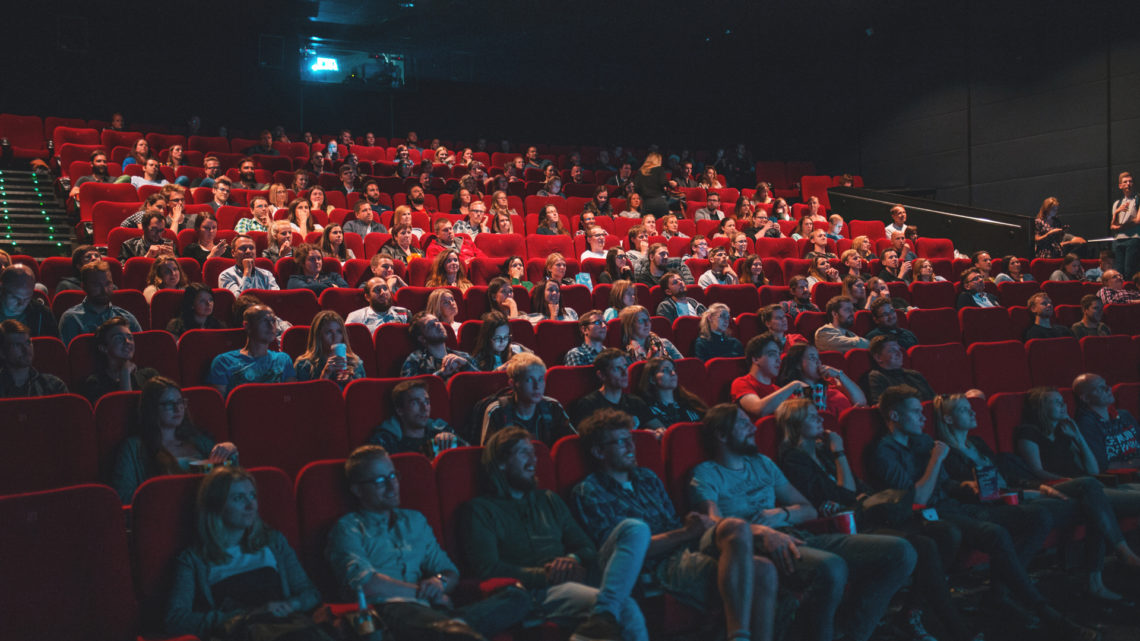How likely is it for an indie film to become profitable? Statistically speaking, the picture is quite bleak – 97% of independent feature films fail to turn a profit.
Most filmmakers assume they will be in the lucky 3%, not realizing that turning a real profit with a low/micro-budget film is practically unheard of.
After all, the most common ingredients to a profitable film are star talent, agency representation, and top tier festival placement, none of which are staples in the micro-budget world.
Not to say those variables are a guarantee of anything, because many films that meet all of the criteria above fail to yield a profit too… But at the very least they give you a fighting chance.
Some indie filmmakers recognize this, and do just about everything they can to beat the odds.
They think: “I might not be able to land an A-list actor to boost my sales potential, but maybe if my concept is commercial enough it will break through.”
Then, every creative decision they make (from story to casting to sales strategy) comes from this place.
Their primary goal is no longer to make the best possible movie, but to make a movie that is optimized to turn a profit.
Of course they probably genuinely do want to make a great movie too… But someone has convinced them that making money with their movie is the ultimate end goal, so that’s what takes precedence.
I very much disagree with this line of thinking.
Ultimately, I believe there are two ways you can look at the purpose of making a micro-budget feature:
- As a product that can become profitable, and incentivize future investors to work with you
- As a creative expression and means to improve your craft, expand your network and develop a body of work
Many films can achieve both of the above of course, but most filmmakers are predominantly driven by one of these goals.
For me, it’s always #2. And the reason is simple –
In the micro-budget realm, the more obviously commercial you try to make your movie, the less creative merit and originality it tends to have. And less creative merit not only equates to a lesser body of work, but also less financial upside over the long term.
Only by not hyper focusing on money early on can you create a body of work that is truly valuable.
This is the paradox of working toward profitability on a small scale.
Successful micro-budget films work because they break the rules. They try new ideas. They do things that can not be done on higher budgets. I talk about this in my article “Missing The Mark With Micro-Budget Films.”
These more experimental films are not always the most immediately profitable, but tend to be further reaching and far more meaningful to overall career building.
On the other hand, micro-budget features that aim to replicate Hollywood level success almost always fall flat. Using a studio-style profit model becomes their achilles heel, making the end products feel like watered down versions of movies we’ve already seen.
The irony of course, is that the harder they try to make their film profitable, the less likely they are to make money.
In the short term, artistically driven feature films are not any better off in terms of profitability, but they do offer far more potential in the long term.
Making movies as a career is all about building your body of work. And over the long haul, if you make honest films that motivated by creativity (and not money), you will almost certainly do better work.
Your films will be more unique, personal, and valuable, regardless of whether they turn a profit right away.
This will lead you to create more films of the same caliber, and over time you will have built a beautiful body of work that is far more valuable than any single film on its own.
And it is this body of work that can lead to real profit in the film industry in the future. Your unique voice and vision is what makes someone want to invest in you down the line, or pay you the big bucks to direct something for hire.
This is why on micro-budget features, I choose to divorce any profit incentive from my creative process.
Of course I need to make a living like anyone else, but I understand the odds are already stacked against me when making a feature film. I know that profitability on a micro-budget film is practically impossible, and that if I try to be the exception to that rule I will almost certainly end up making worse creative decisions.
So instead, I look for indirect ways to leverage my films to generate revenue. These could be anything from ancillary products that are related to the film, to commercial jobs I land as a result of meeting new collaborators.
There are infinite ways you can create revenue streams from your film projects, outside of simply selling or licensing your film. And as I discuss in my course Filmmaker Autonomy, they can be far more lucrative too.
But whether you care about making money with your micro-budget feature or not, my advice is the same: Never let any motivation overshadow your artistry.
Every great career is built from a place of pure creative expression, not financial incentive.
Sean Baker (Director of Tangerine, Florida Project, and Red Rocket) is a great case in point.
He made micro-budget features for decades before winning Sundance with his iPhone feature Tangerine. His films were not commercial by any stretch, and I would doubt any of them (before Tangerine) turned any huge profits.
It’s precisely because they were personal and unique (and not commercial) that they got noticed, and that he got known for his specific directorial approach.
Now he can make movies with higher budgets and stars, specifically because that’s NOT what he set out to do.
If there’s any path to follow, this is it.
For more exclusive articles like this every Sunday, sign up for my newsletter here.



15 Comments
KitchenLawn
atThe goal of KitchenLawn is to help people make informed decisions when it comes to selecting the right kitchenware and appliances for their kitchen.
AppliancesGuidePro
atAppliancesGuidePro is the best resource for finding honest and helpful kitchen appliances reviews. Our team of experts test appliances like stand mixers and other kitchen essentials so you can make an informed purchase.
John
atI agree, but it’s easier if you have lots of income sources and are honestly not concerned about money. That’s… very hard to do. Unless you also aren’t concerned about quality, not to be brutally honest. I’m making a million dollar feature with a few names, and a good solid cast, and while losing a full $1M is a pretty tough pill to swallow, I understand it’s possible. I don’t find it likely, however, unlike this stat indicates (it’s probably referring more to microbudget). We have a distributor before we’re even shooting and they’re a good, reputable company with decades of industry experience at the top. Is it entirely possible I only get 20-50% of my money back any time within the next few years? Sure. But my focus really is on this story, it’s a very personal story but it’s also both commercial and targeted. The audience is clear, though it can appeal to a wide range of people, there’s a ready-made audience to target plus some name power here to help. I legitimately would still make this movie even if I was sure it would lose money because I believe in the story and I know I’ll be proud of the result. I know it’ll help my career overall and I also know I’m not doing anything better either with my time or money. But what would my interest level be if I had a crew of 3 people, mediocre actors, and an amateur feel to the movie? Not excited, for me. Nobody wants to watch that really. It’s like doing you a favor to see it, versus making a real movie with all high end pro gear and experienced professionals who have worked on major movies. For me, that’s the appeal, is telling my story in a way that isn’t compromising so much on vision.
Then again, I think that’s why I chose this story, I knew I can tell it for $1M and afford names. So maybe the key to a no budget feature is somehow finding a story you can tell for almost nothing, but I admit my mind doesn’t work that way. I’ve done $250K for a feature, we made it fully professional with no significant names (but a good name for 2 days, and some working actors) but it was so, so hard even at that level. The idea of a $15K film just makes me chuckle. Like that wouldn’t cover the parking costs for base camp plus fuel on this movie lol.
Gary
atGreat advice for the artistic film maker, but as an investor I NEED to concentrate on profit or risk not being able to invest in bigger projects. It is disheartening knowing there is a 97% chance I won’t even get my inestment back!
Noam Kroll
atAbsolutely – from an investor standpoint it’s a critical consideration. Still, what makes a film valuable is usually its artistic merit and originality. And sometimes making decisions from a place of profit doesn’t lead to those groundbreaking ideas that make the biggest impact with audiences. It’s a tough thing to navigate no matter what!
Jason
atI love this and totally agree. My one question would be how you convince other people to work on your film, most likely for free or a very small amount? Is it just about finding others who are also more interested in the creative expression than making money? I just feel bad constantly expecting people to work for nothing.
Noam Kroll
atThat’s always a huge challenge. But the smaller your crew and the fewer days you have, the more feasible it usually becomes.
faiza insha
atGreat perception
Noam Kroll
atThanks!
Carter Luke
at“Their primary goal is no longer to make the best possible movie, but to make a movie that is optimized to turn a profit.” You are absolutely right, i also don’t think they want to make movies which can change our life or any message which may helps us but nothing! they only want to make profit, that’s it.
Noam Kroll
atGlad this resonated with you, Carter!
Nipun
atI absolutely agree. Thanks for reminding us why we truly love movies. It’s not because they are commercial but because they are authentic and creative expression of a unique filmmaker who is not trying to please you god no!
Noam Kroll
atGlad you agree, Nipun!
Shaun
atNicely put, Noam
Noam Kroll
atGlad you enjoyed it, Shaun!